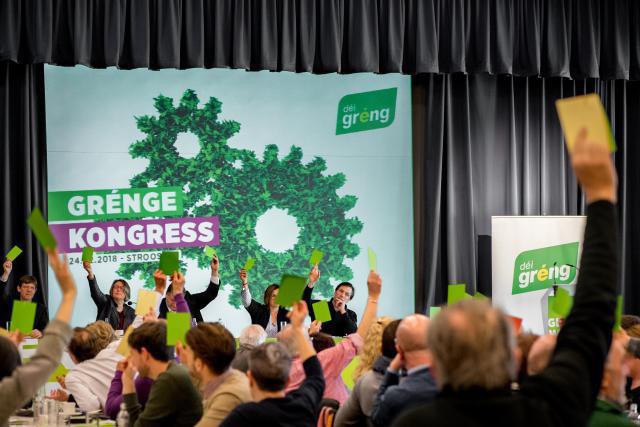Delano: When was your party first established?
Déi Gréng: Déi Gréng was founded on 23 June 1983, on Luxembourg national day.
Delano: Who founded it?
DG: Déi Gréng was initially founded under the name the Alternative Green Party (GAP), born of different ecological, peaceful, anti-nuclear, feminist movements, as well as from organisations supporting developing countries.
Among the most famous founders were Jean Huss, Jup Weber, who were the first elected members of the party in national elections in 1984, and Robert Garcia, who became a member of parliament in 1992. The youth of the party, ever enthusiastic, split in 1986 with the creation of a second green party by Jup Weber, but was successfully merged again in 1995.
Delano: Why what it set up? Was there a key event that led to its establishment?
DG: The party’s creation did not spring from one particular event but found its origins in a more global movement which led to the creation of green parties across the globe. These movements, in the context of the 1968 uprisings, highlighted the need for a new society in the face of challenges related to the protection of the environment, the functioning of democracy and gender equality. The green parties, of which déi Gréng is a part, were the answer to the inability of the established parties to respond to these demands and the challenges they face.
In Luxembourg, it was also the opposition to the project to build a nuclear power station at Remerschen and the increased mobilisation of superpowers in the context of the Cold War that resulted in the creation of the “greens”.
Delano: What were its guiding principles at that time?
DG: From its inception, the guiding principles of the party were multiple and encompassed all political domains. They were and still are ecology, opposition to nuclear power, participatory democracy, human rights and solidarity, peace, rejection of violence, social justice, gender equality, structural change of the economy and the pro-European commitment to an ecological and social Europe.
Delano: How have they changed over the years?
DG: Our guiding principals have not changed over the years, rather they have been solidified to find a concrete foundation upon which the party is based. That said, Luxembourg specific subjects are now part of the déi Gréng’s DNA. Issues such as the integration and equal participation of immigrants in a multicultural and open society.
In addition, ecology and sustainable development in all spheres remain one of the pillars, if not the most important pillar, of our party policies.
Please note that Delano is introducing the political parties for your information only, not to promote one over the other.
